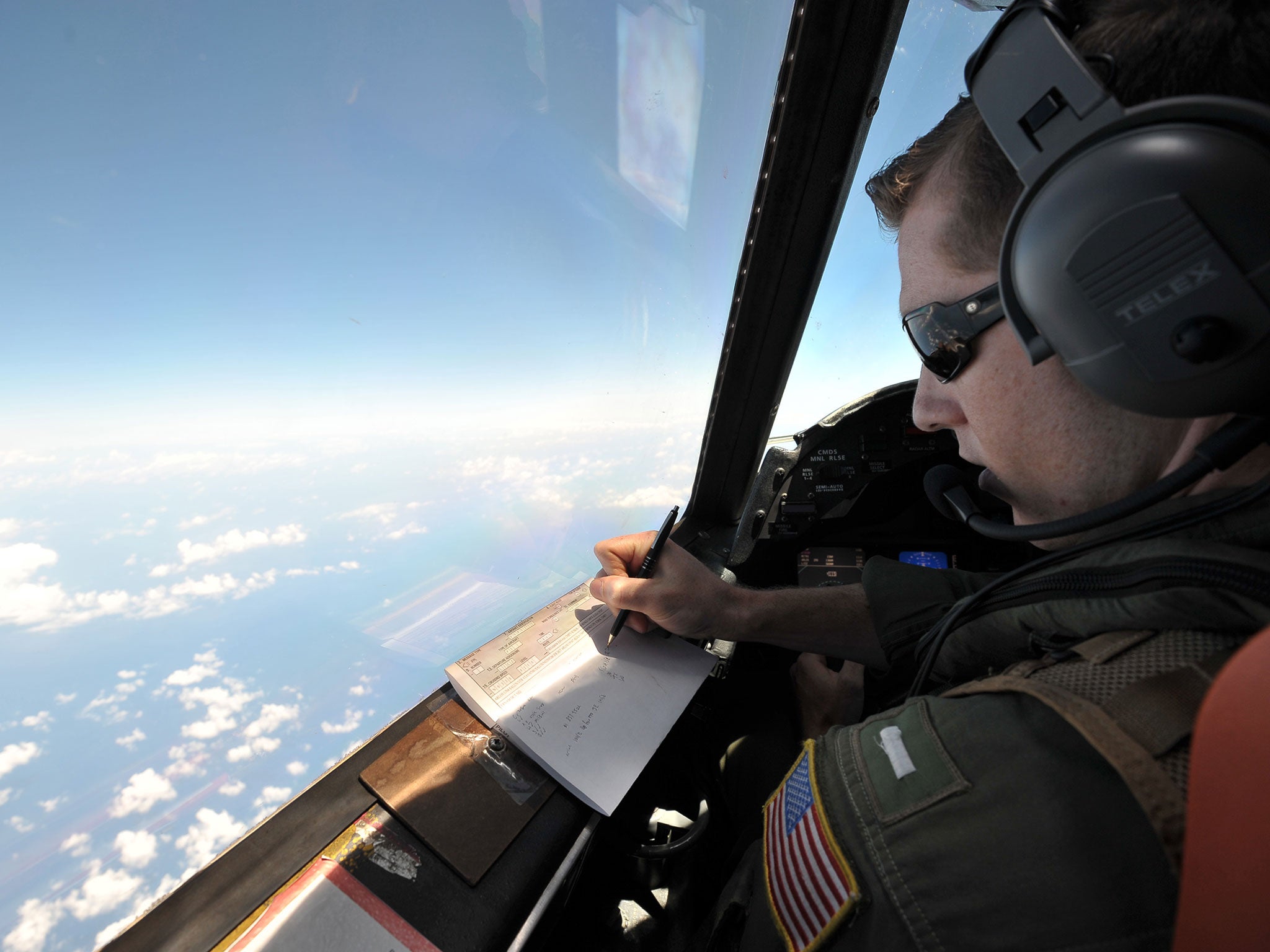EgyptAir crash: Signals picked up from deep in Mediterranean Sea 'could be from flight MS804's black boxes'
The missing flight data recorders hold vital information for officials investigating what caused the plane to crash last month

Your support helps us to tell the story
From reproductive rights to climate change to Big Tech, The Independent is on the ground when the story is developing. Whether it's investigating the financials of Elon Musk's pro-Trump PAC or producing our latest documentary, 'The A Word', which shines a light on the American women fighting for reproductive rights, we know how important it is to parse out the facts from the messaging.
At such a critical moment in US history, we need reporters on the ground. Your donation allows us to keep sending journalists to speak to both sides of the story.
The Independent is trusted by Americans across the entire political spectrum. And unlike many other quality news outlets, we choose not to lock Americans out of our reporting and analysis with paywalls. We believe quality journalism should be available to everyone, paid for by those who can afford it.
Your support makes all the difference.A French company has confirmed its special undersea search ship has picked up signals emanating from EgyptAir flight 804’s black boxes in the Mediterranean Sea.
The missing flight data recorders hold vital information for officials investigating what caused the plane to crash last month, killing everyone on board.
The company, Alseamar, said the Laplace ship had begun searching for signals at mid-day on Tuesday and "less than 24 hours were necessary ... to locate signals from a detector attached to one of the recorders of flight MS804".
The French air accident investigation agency BEA said it is impossible to determine whether the signals are from the flight's data or voice recorder.
A progress report from the Egyptian Aircraft Accident Investigation Committee previouly said a vessel had received signals during searches using sonar equipment.
“The French vessel “Laplace”…has received through its search equipment signals from the seabed of the wreckage search area, assumed to be from one of the data recorders,” a statement said.
“Extensive search efforts are being carried out to locate the two data recorders in preparation for their retrieval.”
The French Navy confirmed the signal's detection by its survey ship, which is among several vessels searching for the wreckage lying thousands of metres below the surface.
Officials from the US National Oceanic and Atmospheric Administration told The Independent American and European satellites detected distress signals pinpointing the plane’s emergency location transmitter minutes after the Airbus A320 crashed.
The signal was picked up at 2.36am local time on 19 May and transmitted to France’s Mission Control Centre and civil aviation ministry, calculating the location of the crash to be between the Greek island of Crete and Egyptian coast.
Another ship, Deep Ocean Search’s John Lethbridge, will join the search team later this week as efforts to recover the black boxes continue.
Human remains, plane seats, life jackets and passengers’ luggage are among the items found so far and are being analysed.
The cause of the disaster, which killed all 66 passengers and crew on board the flight from Paris to Cairo, remains unknown.
Automatic messages sent in the minutes before the plane disappeared from radar appeared to indicate problems with the cockpit windows, autopilot and the flight control system, and smoke on board.
Egypt’s civil aviation minister initially said he believed terrorism was a more likely explanation than equipment failure but so far no hard evidence has emerged and no group has claimed responsibility.
A forensics official said body parts retrieved so far were small and pointed to a possible explosion on board, but the head of Egypt’s forensics authority dismissed it as “mere assumptions”.
Claims by Greece's defence minister that the plane swerved and rapidly lost altitude before it disappeared from radar have also been challenged by an Egyptian official.
Among the victims was Richard Osman, a father-of-two from Wales, and a Frenchman who almost missed the fated flight after losing his passport.
EgyptAir said 30 Egyptians, 15 French passengers, two Iraqis, and one passenger from Britain, Sudan, Chad, Portugal, Algeria, Canada, Belgium, Kuwait and Saudi Arabia were on board.
Join our commenting forum
Join thought-provoking conversations, follow other Independent readers and see their replies
Comments